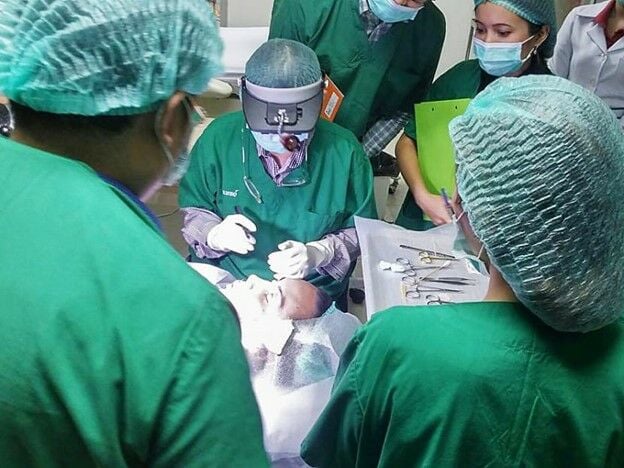Thai healthcare crisis: Overworked medics spark reform debate as state hospitals struggle

In a stark representation of the nationwide Thai healthcare concern regarding overburdened medical staff in Thailand’s public hospitals, a doctor-turned-actress recently utilised her social media platform to highlight her struggle with the strenuous work environment. Ultimately, she found the situation so unmanageable that she felt compelled to leave her public service role.
Amidst this, the National Public Health Ministry faces the visceral challenge of curating an equitable and fosterable working environment for medical staff, while concurrently upholding the highest standards of medical care in public hospitals in the Thai healthcare industry.
Deputy director at the Health Systems Research Institute, Jaruayporn Srisasalux, shed light on the issue, labelling the unfair balance as a “deep-seated ache for the public health system.”
She identified a generational shift, with young doctors now prioritising work-life balance. Given the choice, they favour the transition to an establishment that caters to these interests.
The issue of fair compensation in Thai healthcare was also highlighted. State-owned public hospitals pay a general doctor around 50,000 baht, whereas private hospitals can offer nearly double this amount. According to Jaruayporn, a plausible method to counteract the shortage is to hire additional doctors. But this is impractical in state-owned hospitals due to budgetary constraints and existing regulations.
Jaruayporn proposed that the Public Health Ministry could extrapolate the model followed by Banphaeo General Hospital, which transitioned to a public organisation in 2000 as part of a government initiative to reduce public expenditure. With independent management, the hospital has been able to generate more income, hire additional medical personnel, and respond more flexibly to issues such as staff and budget shortages to improve Thai healthcare.
Another drawback Jaruayporn mentioned was the politicisation of public health, referring to the universal healthcare scheme, often labelled as 30 baht healthcare, reported Bangkok Post. Jaruayporn said…
“The policy was designed to serve 49 million people holding the universal healthcare card without a proper screening process. The policy needs reconsideration to ensure that it doesn’t destabilize Thailand’s public health infrastructure in the long run.,
Jaruayporn suggested that competitive salaries, enhanced welfare and guaranteed career progression may contribute to retaining more doctors in public hospitals for an effective Thai healthcare system. Current figures from the ministry affirm that out of 60,000 doctors nationwide, 24,649 are within the ministry’s remit.
Deputy chief of the National Health Security Office (NHSO), Dr Attaporn Limpanyalert, confirmed that the office is actively trying to alleviate the workload of doctors and medical staff. By October 1, NHSO plans to improve its database system and cooperate with private hospitals to increase their capacity for universal healthcare cardholders.
Dr Chutinart Chinudomporn, a coordinator of the Thai Frontline Physician Union, expressed concern about the ministry’s slow progress in addressing the overworked medical staff issue. She said…
“If there is no strategic policy to fix the problem, we will not see a light at the end of the tunnel.”
Latest Thailand News
Follow The Thaiger on Google News:


























